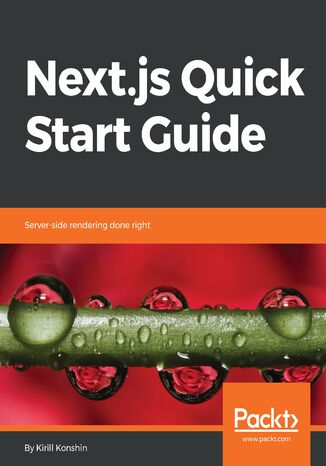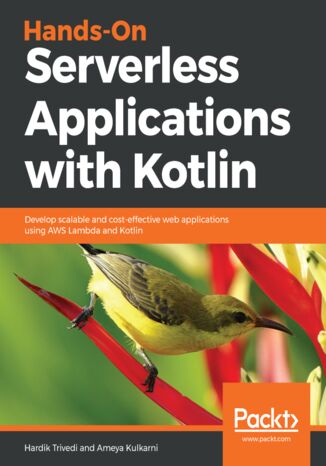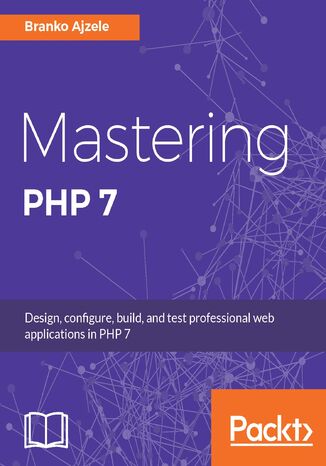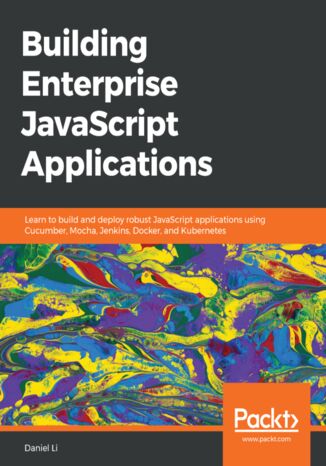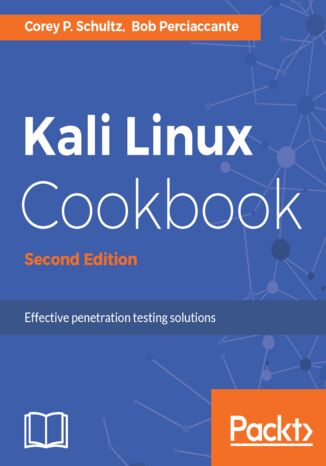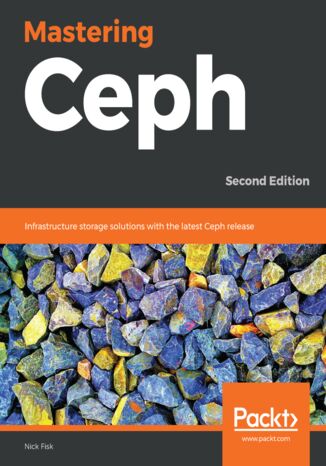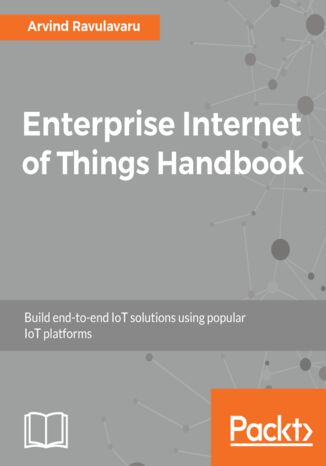Categories
Ebooks
-
Business and economy
- Bitcoin
- Businesswoman
- Coaching
- Controlling
- E-business
- Economy
- Finances
- Stocks and investments
- Personal competence
- Computer in the office
- Communication and negotiation
- Small company
- Marketing
- Motivation
- Multimedia trainings
- Real estate
- Persuasion and NLP
- Taxes
- Social policy
- Guides
- Presentations
- Leadership
- Public Relation
- Reports, analyses
- Secret
- Social Media
- Sales
- Start-up
- Your career
- Management
- Project management
- Human Resources
-
For children
-
For youth
-
Education
-
Encyclopedias, dictionaries
-
E-press
- Architektura i wnętrza
- Health and Safety
- Biznes i Ekonomia
- Home and garden
- E-business
- Ekonomia i finanse
- Esoterecism
- Finances
- Personal finance
- Business
- Photography
- Computer science
- HR & Payroll
- For women
- Computers, Excel
- Accounts
- Culture and literature
- Scientific and academic
- Environmental protection
- Opinion-forming
- Education
- Taxes
- Travelling
- Psychology
- Religion
- Agriculture
- Book and press market
- Transport and Spedition
- Healthand beauty
-
History
-
Computer science
- Office applications
- Data bases
- Bioinformatics
- IT business
- CAD/CAM
- Digital Lifestyle
- DTP
- Electronics
- Digital photography
- Computer graphics
- Games
- Hacking
- Hardware
- IT w ekonomii
- Scientific software package
- School textbooks
- Computer basics
- Programming
- Mobile programming
- Internet servers
- Computer networks
- Start-up
- Operational systems
- Artificial intelligence
- Technology for children
- Webmastering
-
Other
-
Foreign languages
-
Culture and art
-
School reading books
-
Literature
- Antology
- Ballade
- Biographies and autobiographies
- For adults
- Dramas
- Diaries, memoirs, letters
- Epic, epopee
- Essay
- Fantasy and science fiction
- Feuilletons
- Work of fiction
- Humour and satire
- Other
- Classical
- Crime fiction
- Non-fiction
- Fiction
- Mity i legendy
- Nobelists
- Novellas
- Moral
- Okultyzm i magia
- Short stories
- Memoirs
- Travelling
- Narrative poetry
- Poetry
- Politics
- Popular science
- Novel
- Historical novel
- Prose
- Adventure
- Journalism, publicism
- Reportage novels
- Romans i literatura obyczajowa
- Sensational
- Thriller, Horror
- Interviews and memoirs
-
Natural sciences
-
Social sciences
-
School textbooks
-
Popular science and academic
- Archeology
- Bibliotekoznawstwo
- Cinema studies
- Philology
- Polish philology
- Philosophy
- Finanse i bankowość
- Geography
- Economy
- Trade. World economy
- History and archeology
- History of art and architecture
- Cultural studies
- Linguistics
- Literary studies
- Logistics
- Maths
- Medicine
- Humanities
- Pedagogy
- Educational aids
- Popular science
- Other
- Psychology
- Sociology
- Theatre studies
- Theology
- Economic theories and teachings
- Transport i spedycja
- Physical education
- Zarządzanie i marketing
-
Guides
-
Game guides
-
Professional and specialist guides
-
Law
- Health and Safety
- History
- Road Code. Driving license
- Law studies
- Healthcare
- General. Compendium of knowledge
- Academic textbooks
- Other
- Construction and local law
- Civil law
- Financial law
- Economic law
- Economic and trade law
- Criminal law
- Criminal law. Criminal offenses. Criminology
- International law
- International law
- Health care law
- Educational law
- Tax law
- Labor and social security law
- Public, constitutional and administrative law
- Family and Guardianship Code
- agricultural law
- Social law, labour law
- European Union law
- Industry
- Agricultural and environmental
- Dictionaries and encyclopedia
- Public procurement
- Management
-
Tourist guides and travel
- Africa
- Albums
- Southern America
- North and Central America
- Australia, New Zealand, Oceania
- Austria
- Asia
- Balkans
- Middle East
- Bulgary
- China
- Croatia
- The Czech Republic
- Denmark
- Egipt
- Estonia
- Europe
- France
- Mountains
- Greece
- Spain
- Holand
- Iceland
- Lithuania
- Latvia
- Mapy, Plany miast, Atlasy
- Mini travel guides
- Germany
- Norway
- Active travelling
- Poland
- Portugal
- Other
- Przewodniki po hotelach i restauracjach
- Russia
- Romania
- Slovakia
- Slovenia
- Switzerland
- Sweden
- World
- Turkey
- Ukraine
- Hungary
- Great Britain
- Italy
-
Psychology
- Philosophy of life
- Kompetencje psychospołeczne
- Interpersonal communication
- Mindfulness
- General
- Persuasion and NLP
- Academic psychology
- Psychology of soul and mind
- Work psychology
- Relacje i związki
- Parenting and children psychology
- Problem solving
- Intellectual growth
- Secret
- Sexapeal
- Seduction
- Appearance and image
- Philosophy of life
-
Religion
-
Sport, fitness, diets
-
Technology and mechanics
Audiobooks
-
Business and economy
- Bitcoin
- Businesswoman
- Coaching
- Controlling
- E-business
- Economy
- Finances
- Stocks and investments
- Personal competence
- Communication and negotiation
- Small company
- Marketing
- Motivation
- Real estate
- Persuasion and NLP
- Taxes
- Social policy
- Guides
- Presentations
- Leadership
- Public Relation
- Secret
- Social Media
- Sales
- Start-up
- Your career
- Management
- Project management
- Human Resources
-
For children
-
For youth
-
Education
-
Encyclopedias, dictionaries
-
E-press
-
History
-
Computer science
-
Other
-
Foreign languages
-
Culture and art
-
School reading books
-
Literature
- Antology
- Ballade
- Biographies and autobiographies
- For adults
- Dramas
- Diaries, memoirs, letters
- Epic, epopee
- Essay
- Fantasy and science fiction
- Feuilletons
- Work of fiction
- Humour and satire
- Other
- Classical
- Crime fiction
- Non-fiction
- Fiction
- Mity i legendy
- Nobelists
- Novellas
- Moral
- Okultyzm i magia
- Short stories
- Memoirs
- Travelling
- Poetry
- Politics
- Popular science
- Novel
- Historical novel
- Prose
- Adventure
- Journalism, publicism
- Reportage novels
- Romans i literatura obyczajowa
- Sensational
- Thriller, Horror
- Interviews and memoirs
-
Natural sciences
-
Social sciences
-
Popular science and academic
-
Guides
-
Professional and specialist guides
-
Law
-
Tourist guides and travel
-
Psychology
- Philosophy of life
- Interpersonal communication
- Mindfulness
- General
- Persuasion and NLP
- Academic psychology
- Psychology of soul and mind
- Work psychology
- Relacje i związki
- Parenting and children psychology
- Problem solving
- Intellectual growth
- Secret
- Sexapeal
- Seduction
- Appearance and image
- Philosophy of life
-
Religion
-
Sport, fitness, diets
-
Technology and mechanics
Videocourses
-
Data bases
-
Big Data
-
Biznes, ekonomia i marketing
-
Cybersecurity
-
Data Science
-
DevOps
-
For children
-
Electronics
-
Graphics/Video/CAX
-
Games
-
Microsoft Office
-
Development tools
-
Programming
-
Personal growth
-
Computer networks
-
Operational systems
-
Software testing
-
Mobile devices
-
UX/UI
-
Web development
-
Management
Podcasts
Next.js Quick Start Guide. Server-side rendering done right
Next.js is a powerful addition to the ever-growing and dynamic JavaScript world. Built on top of React, Webpack, and Babel, it is a minimalistic framework for server-rendered universal JavaScript applications. This book will show you the best practices for building sites using Next. js, enabling you to build SEO-friendly and superfast websites.This book will guide you from building a simple single page app to a scalable and reliable client-server infrastructure. You will explore code sharing between client and server, universal modules, and server-side rendering.The book will take you through the core Next.js concepts that everyone is talking about – hot reloading, code splitting, routing, server rendering, transpilation, CSS isolation, and more. You will learn ways of implementing them in order to create your own universal JavaScript application. You will walk through the building and deployment stages of your applications with the JSON API,customizing the confguration, error handling,data fetching, deploying to production, and authentication.
Hardik Trivedi, Ameya Kulkarni
Serverless is a cloud computing execution model where the cloud provider dynamically manages the allocation and provisioning of servers. Many companies now use serverless architectures to cut costs and improve scalability. Thanks to its concise and expressive syntax and a smooth learning curve, Kotlin is a great fit for developing serverless applications.With this book, you’ll be able to put your knowledge to work by implementing serverless technology in your applications and become productive in no time. Complete with detailed explanation of essential concepts and examples, this book will help you understand the serverless architecture fundamentals and how to design serverless architectures for your applications. You’ll also explore how AWS Lambda functions work. The book will guide you in designing, building, securing, and deploying your application to production, along with implementing non-functional requirements such as auditing and logging. Furthermore, you’ll discover how to scale up and orchestrate serverless applications using an open source framework and handle distributed serverless systems in production.By the end of the book, you’ll be able to build scalable and cost-efficient Kotlin applications with a serverless framework.
Mastering PHP 7. Design, configure, build, and test professional web applications
PHP is a server-side scripting language that is widely used for web development. With this book, you will get a deep understanding of the advanced programming concepts in PHP and how to apply it practicallyThe book starts by unveiling the new features of PHP 7 and walks you through several important standards set by PHP Framework Interop Group (PHP-FIG). You’ll see, in detail, the working of all magic methods, and the importance of effective PHP OOP concepts, which will enable you to write effective PHP code. You will find out how to implement design patterns and resolve dependencies to make your code base more elegant and readable. You will also build web services alongside microservices architecture, interact with databases, and work around third-party packages to enrich applications. This book delves into the details of PHP performance optimization. You will learn about serverless architecture and the reactive programming paradigm that found its way in the PHP ecosystem. The book also explores the best ways of testing your code, debugging, tracing, profiling, and deploying your PHP application. By the end of the book, you will be able to create readable, reliable, and robust applications in PHP to meet modern day requirements in the software industry.
With the over-abundance of tools in the JavaScript ecosystem, it's easy to feel lost. Build tools, package managers, loaders, bundlers, linters, compilers, transpilers, typecheckers - how do you make sense of it all?In this book, we will build a simple API and React application from scratch. We begin by setting up our development environment using Git, yarn, Babel, and ESLint. Then, we will use Express, Elasticsearch and JSON Web Tokens (JWTs) to build a stateless API service. For the front-end, we will use React, Redux, and Webpack.A central theme in the book is maintaining code quality. As such, we will enforce a Test-Driven Development (TDD) process using Selenium, Cucumber, Mocha, Sinon, and Istanbul. As we progress through the book, the focus will shift towards automation and infrastructure. You will learn to work with Continuous Integration (CI) servers like Jenkins, deploying services inside Docker containers, and run them on Kubernetes.By following this book, you would gain the skills needed to build robust, production-ready applications.
Kali Linux Cookbook. Effective penetration testing solutions - Second Edition
Corey P. Schultz, Bob Perciaccante
Kali Linux is a Linux distribution designed for penetration testing and security auditing. It is the successor to BackTrack, the world’s most popular penetration testing distribution. Kali Linux is the most widely used platform and toolkit for penetration testing. Security is currently the hottest field in technology with a projected need for millions of security professionals. This book focuses on enhancing your knowledge in Kali Linux for security by expanding your skills with toolkits and frameworks that can increase your value as a security professional.Kali Linux Cookbook, Second Edition starts by helping you install Kali Linux on different options available. You will also be able to understand the lab architecture and install a Windows host for use in the lab. Next, you will understand the concept of vulnerability analysis and look at the different types of exploits. The book will introduce you to the concept and psychology of Social Engineering and password cracking. You will then be able to use these skills to expand the scope of any breaches you create. Finally, the book will guide you in exploiting specific technologies and gaining access to other systems in the environment. By the end of this book, you will have gained the core knowledge and concepts of the penetration testing process.
This book will provide you with unique, idiomatic, and fun recipes for both fundamental and advanced data manipulation tasks with pandas 0.20. Some recipes focus on achieving a deeper understanding of basic principles, or comparing and contrasting two similar operations. Other recipes will dive deep into a particular dataset, uncovering new and unexpected insights along the way.The pandas library is massive, and it's common for frequent users to be unaware of many of its more impressive features. The official pandas documentation, while thorough, does not contain many useful examples of how to piece together multiple commands like one would do during an actual analysis. This book guides you, as if you were looking over the shoulder of an expert, through practical situations that you are highly likely to encounter.Many advanced recipes combine several different features across the pandas 0.20 library to generate results.
Mastering Ceph. Infrastructure storage solutions with the latest Ceph release - Second Edition
Ceph is an open source distributed storage system that is scalable to Exabyte deployments. This second edition of Mastering Ceph takes you a step closer to becoming an expert on Ceph.You’ll get started by understanding the design goals and planning steps that should be undertaken to ensure successful deployments. In the next sections, you’ll be guided through setting up and deploying the Ceph cluster with the help of orchestration tools. This will allow you to witness Ceph’s scalability, erasure coding (data protective) mechanism, and automated data backup features on multiple servers. You’ll then discover more about the key areas of Ceph including BlueStore, erasure coding and cache tiering with the help of examples. Next, you’ll also learn some of the ways to export Ceph into non-native environments and understand some of the pitfalls that you may encounter. The book features a section on tuning that will take you through the process of optimizing both Ceph and its supporting infrastructure. You’ll also learn to develop applications, which use Librados and distributed computations with shared object classes. Toward the concluding chapters, you’ll learn to troubleshoot issues and handle various scenarios where Ceph is not likely to recover on its own.By the end of this book, you’ll be able to master storage management with Ceph and generate solutions for managing your infrastructure.
Enterprise Internet of Things Handbook. Build end-to-end IoT solutions using popular IoT platforms
There is a lot of work that is being done in the IoT domain and according to Forbes the global IoT market will grow from $157B in 2016 to $457B by 2020. This is an amazing market both in terms technology advancement as well as money. In this book, we will be covering five popular IoT platforms, namely, AWS IoT, Microsoft Azure IoT, Google IoT Core, IBM Watson IoT, and Kaa IoT middleware. You are going to build solutions that will use a Raspberry Pi 3, a DHT11 Temperature and humidity sensor, and a dashboard to visualize the sensor data in real-time. Furthermore, you will also explore various components of each of the platforms that are needed to achieve the desired solution. Besides building solutions, you will look at how Machine Learning and IoT go hand in hand and later design a simple predictive web service based on this concept. By the end of this book, you will be in a position to implement an IoT strategy best-fit for your organization

